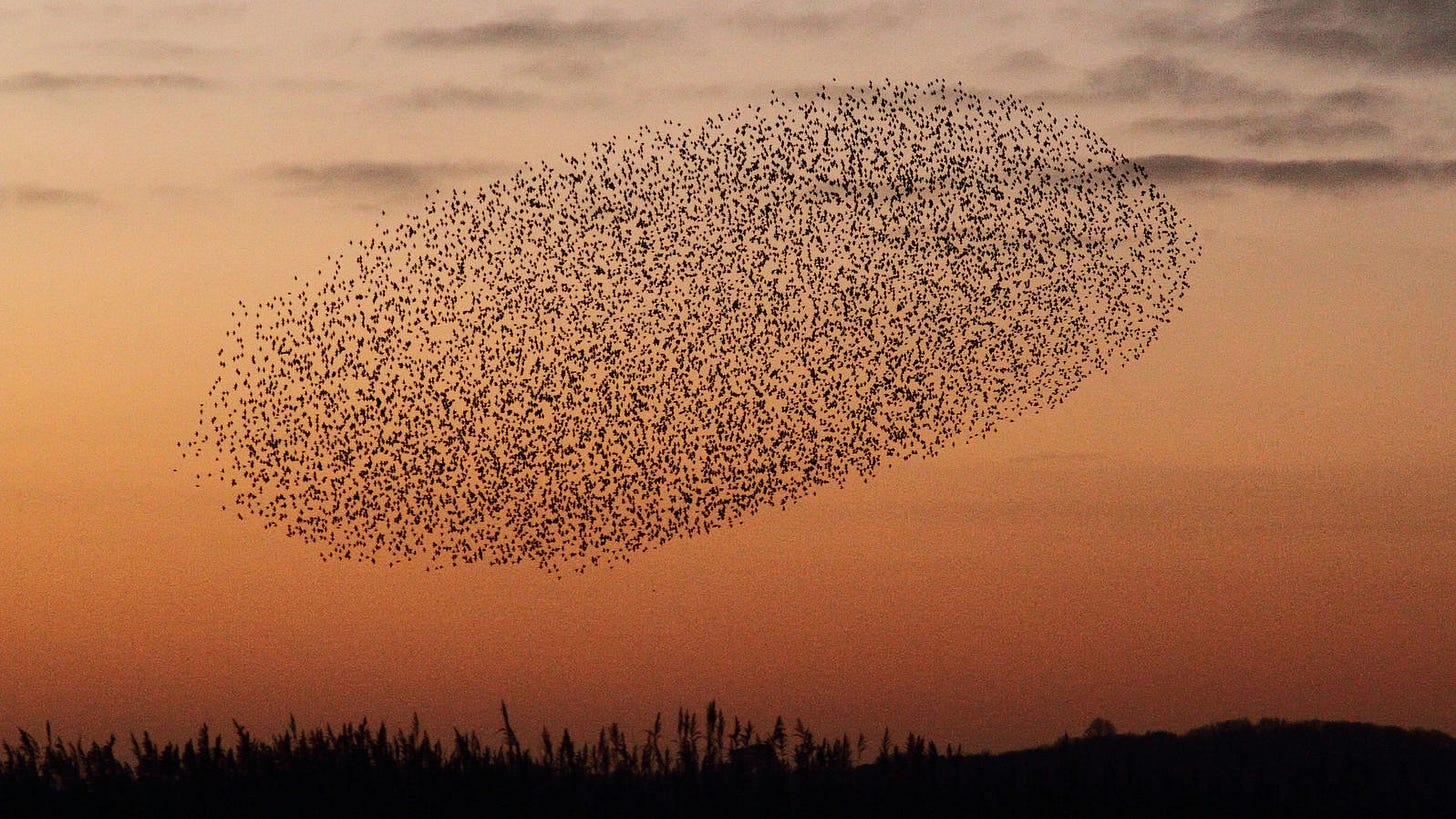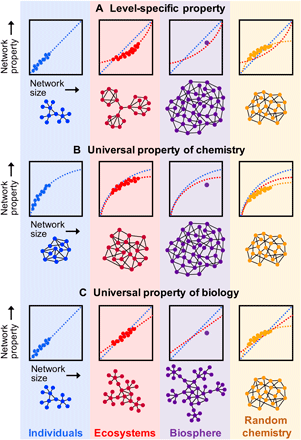Greetings from Roll the Bones! Here we muse about complexity, learning, epistemology, accomplishing goals in complex environments, and whatever else I might be in the mood to discuss.
One thing I want to drive home is that life is not a game. The only simple, widely-understandable rules it follows are given by God Himself. In all other aspects, things are often more complex than they appear.
This Week’s Links
There are no affiliate links here, just things I’ve been reading. None of the authors have any idea their work is about to be featured and they haven’t paid me a cent.

When Can We Call a System Self-Organizing?
Previously we’d discussed how in certain settings complex==”there’s stuff we don’t/can’t know about it”. This is another related take, this time on what people mean when they say self-organizing. Carlos Gershenson and Francis Heylighen walk us through their arguments in an unusually readable fashion (for an academic paper anyway). Carlos has done a lot of excellent work in this and related fields since this paper was published (2003). I bumped into him briefly at ICCS 2020.
My thoughts:
Entropy, in terms of energy, can be thought of as a desire of things to reach a stable state where everything is pretty much the same (your house always wants to be the same temperature as outside, etc.) Forgive the bad explanation and bear with me. When talking about information, entropy refers to how surprising something is. If someone says “I’m home!” but you saw them walking in the door, what they said carries not so much information (low entropy). Supposedly, self-organizing things are lower entropy; they are more predictable.
This paper asserts that self-organization can be considered an identifying trait of things that are “alive”. If so, living things are things which seemingly fight against entropy by imposing order in a world where the overall trend is towards chaos. (That happens to be compatible with my faith, btw)
You’ll notice that how much information something carries is relative to the observer. If someone in the other room hears an entrant say “I’m home!”, they learn more from it than you did when you saw them walk in the door beforehand. Entropy and self-organization are ways to think about systems, not necessarily objective attributes. Maybe.

Does AI Need a Body?
This idea was also discussed in previous issues, but there are researchers trying to understand embodied cognition, and some of them wonder how that could impact the way we approach the creation of AIs. Tom Froese (who I think knows Dr. Gershenson?) and Tom Ziemke talk about autopoiesis and other key ideas of embodiment in relation to an AI. Dr. Froese currently has a unit studying embodied cognition at the Okinawa Institute of Science and Technology (I used to live nearby!)
What I think:
This paper came out before the Deep Learning revolution but I think it stands today, especially amidst growing concerns that we’re starting to hit computational constraints again with our models. It’s long, but a good one to skim/jump off into interesting material in the references.
Even though modern deep learning and related approaches are valuable bits of automation, their “brain in a vat” approach never struck me at being very true to the idea of artificial intelligence. I wish these methods weren’t associated with AI, even if they can be useful. As they are a new form of automation on steroids, their dangers and caveats are on steroids too, but that’s a topic for another time…
Embodied approaches often involve robots, as you might expect. While much good progress has been made, the complexity of real biological systems that researchers want to understand/imitate must be daunting. Tom and Tom discuss some of the challenges (and successes) of the embodied approach to AI.
We learn with our bodies, and we use our bodies to think. We learn with our social groups, and we use our social groups to think across space and time (you’re thinking with me right now!) The potential for artificial life/intelligence to do the same is exciting to me.

The Whole World As A Network
This recent Nature article (Hyunju Kim et al) discusses an attempt to use networks to model ecology at a planetary level. They compare biochemical compositions of things with random chemical compositions and look at the results, among other things. It turns out that you can determine a whole lot about an ecosystem by looking at its chemical makeup and network structure.
My thoughts:
I need to study network theory. Anyone have any recommended sources?
Part of what the authors are trying to find are universal laws of life. As such, they classify some of the network structures they find as being scale-specific, universal laws of chemistry, or universal laws of biology. This is an interesting approach to “triangulating” universal laws by seeing what does and does not change as you scale a system larger or smaller.
Surprisingly, this group found that network structure strongly predicted evolutionary domain. Further understanding in this direction could maybe teach us how to “seed” an ecosystem and know what to expect when it flourishes. While this needs further study, I am surprised at the possibility. Perhaps one day we’ll know how to seed even something like a “big bang” to get the sort of world we have today.
What is the network structure of your social groups? Where does the information flow? Important lessons about the systems around you could be right under your nose.
Thank you for reading and engaging.
I appreciate you taking the time to read this newsletter. It’s free, but if you want to help support me you can always make a one time donation.
You can also engage with me on Twitter at @10101Lund about these or any other topics. If something is wrong, please let me know and I’ll correct it. Archives of this newsletter are here.
Tell a friend. See you next issue!
You have the choice of two silly, topical songs today.


I have always wanted to apply something like the planetary network approach to biology you cite/explain here to global economics. The world prospers as the total number of goods and services increases (among other things) - and falters when it does not. National borders and ideologies make that far, far more muddled than - I think - a planetary study would. I suspect the topological effects from that same ecological work would apply as well.